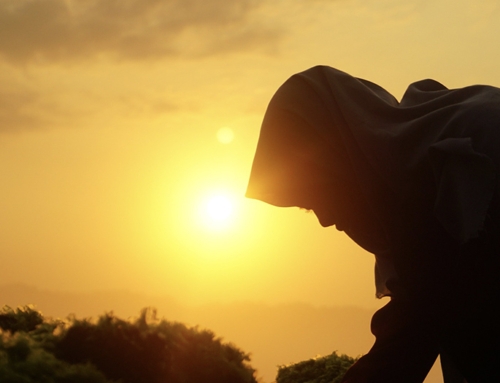Turning the Other Cheek: A Doctrine of Forgiveness in Christianity and Islam
Turning the other cheek is a doctrine in Christianity that refers to not taking revenge for injury or wrong doing. This doctrine is a point of pride for Christians. We find the following verses in the New Testament, But I say unto you which hear, Love your enemies, do good to them which hate you, Bless them that curse you, and pray for them which despitefully use you. And unto him that smiteth thee on the one cheek offer also the other; and him that taketh away thy cloke forbid not to take thy coat also (Luke: 27-29). Because of the violent images attributed to Islam and Muslims in the media most are unaware that the Qurʾān has a similar concept, Nor can goodness and evil be equal. Repel evil with what is better: then will he between whom and you was hatred become as it were your friend and intimate (Q. 41: 34).
Balancing Forgiveness and Justice: The Doctrine of Turning the Other Cheek
When is this doctrine of turning the other cheek to be applied? How practical is it in the world we live in? If one always turns the cheek, what then is the role of justice and ending oppression and tyranny. Certainly, if a robber breaks into one’s home it would be unreasonable and illogical to encourage them to steal more. Or if someone kidnapped a child or committed rape are they to be allowed to escape with no repercussions? Islam encourages restraint and forgiveness while simultaneously acknowledges the need for justice. Indeed Allah commands justice and kindness (Q. 16: 90). The tension between forgiveness and justice are exemplified in the statements of Ghandi and Malcolm X. Ghandi famously said that an eye for an eye makes the whole world blind, but Malcolm X explained that “if you turn the other cheek you can be enslaved for 1000 years.”
The Balancing Act: Forgiveness, Restraint, and Ending Injustice
A simple observation of human nature and history will demonstrate that it will always be very few people who exercise forgiveness and restraint. Conflict, oppression, and injustice has always been part of human history. Overlooking injustice and wrongdoing can sometimes result in enabling oppressors to continue in their oppression. The best way to help the wrongdoer is to stop him from his wrongdoing. The Prophet peace be upon him said Help your brother whether he is a wrong-doer or is wronged. A man enquired: O Messenger of God, I may help him when he is wronged, but how can I help him when he is a wrong-doer? The Prophet peace be upon him said, You can prevent him from wrong-doing. That will be your help to him (Bukhari).
The Role of Violence: Exploring the Necessity and Realities in Life
The concept of war as always being evil is taken to be an unchallenged truth in the West. Any religion that advocates violence cannot be a true religion of God. However, violence is sometimes necessary in life. Police officers exercise violence to subdue criminals or to end a mass shooting. This is not to say that we should encourage violence or war, but that violence is at times a necessary part of life. To argue that the highest ideals in all circumstances is passivism and turning the other cheek is unpractical and only results in more violence and injustice.
The Perception of Jesus: Examining the Role of Violence in Christian Scripture
The perception of Jesus peace be upon him as a passive individual who would have never encouraged violence in inaccurate even according to Christian scripture. Even in the Christian tradition, Jesus peace be upon him is to return and establish justice on earth through violence. Armageddon is the location of the last battle on earth between good and evil in which Jesus peace be upon him will fight the anti-Christ and put an end to injustice. Jesus himself states that violence and conflict are a part of the process of fighting wrong doing, Think not that I am come to send peace on earth: I came not to send peace, but a sword. For I am come to set a man at variance against his father, and the daughter against her mother, and the daughter in law against her mother in law. And a man’s foes shall be they of his own household. (Matthew 10: 34-36).
Islam’s Approach to Turning the Other Cheek: Balance Between Forgiveness and Justice
In Islam, there are many examples of the Prophet Muhammad peace be upon him turning the other cheek, especially in matters that related to his personal life. If someone wronged him personally he would forgive them and overlook their wrong. However, when it came to the rights of others, the poor, orphans, and weak, he would fight for their rights and justice. This helps establish a line between turning the other cheek and not enabling injustice. In this regard, we find that Islam encourages forgiveness, but understands that practicality and need for justice. Turning the other cheek is a great ideal when forgiving your sibling for hurting your feelings, or your business partner who cheated you out of a deal. However, it is not always practical in cases of murder, rape, or highway robbery. Islam lauds the person who practices restraint and forgiveness to the one who may have wronged them, but forgiveness is the individual’s choice. When it comes to the rights of the community at large or the weak and oppressed, turning a blind eye or other cheek would be injustice and enabling those who do wrong.
Got Questions?
We have Answers. Get in touch now.








